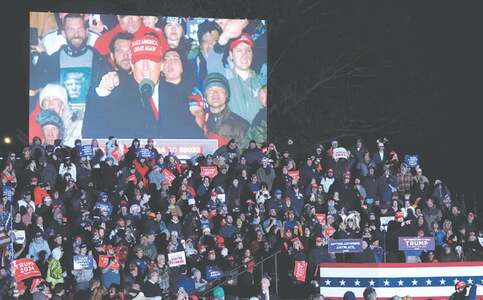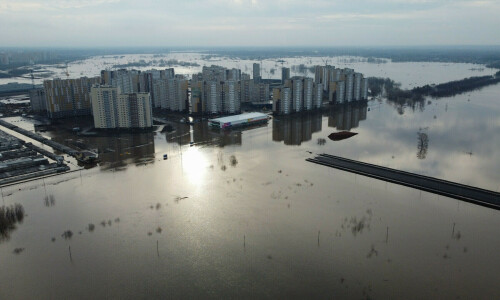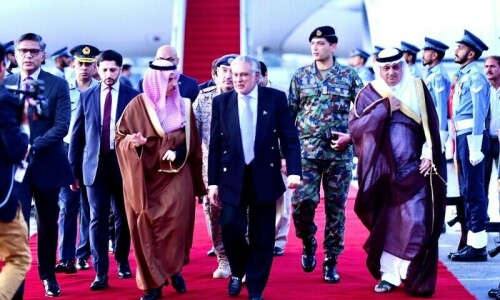BAGHDAD: Iraqi government forces said on Wednesday they had retaken almost all the areas disputed between Baghdad and the autonomous Kurdistan region following a sweeping advance into oil-rich Kirkuk province in response to an independence vote.
The retreat of Kurdish forces, almost without a fight, triggered recriminations amongst Kurdish politicians and prompted the regional parliament to postpone elections set for Nov 1.
On Monday and Tuesday, federal troops and allied militias retook the northern province and its lucrative oilfields, as well as formerly Kurdish-held areas of Nineveh and Diyala provinces.
The largely bloodless operation restored to Baghdad’s control swathes of territory held by Kurdish forces since 2003, leaving Kurds stunned just weeks after the nationalist fervour of the referendum they held in defiance of the central government.
It also dealt a severe blow to the autonomous region’s finances, which had relied heavily on revenues from exports of Kirkuk oil.
Kurdish forces are now largely confined to their longstanding three-province autonomous region in the north.
They have lost nearly all of the territory they had taken since the US-led invasion of 2003, some of it during the chaos of the militant Islamic State (IS) group’s charge across northern Iraq in 2014.
The band of territory, stretching for over 1,000 kilometres from the Syrian border in the west to the Iranian frontier in the east, was the subject of a rancorous dispute with Baghdad.
Prime Minister Haider al-Abadi said on Tuesday that the Sept 25 vote in which Kurds overwhelmingly backed independence was now “a thing of the past”.
“Central authority must be imposed everywhere in Iraq,” he said.
French geographer and Kurdistan specialist Cyril Roussel said that in the space of 48 hours the Kurds had lost virtually all of the 23,000 square kilometres that they had acquired since 2003.
“That’s virtually a return to the Green Line — that is the three provinces of autonomous Kurdistan,” he said.
The autonomous region’s vice-president Kosrat Rasul called the setback “a new Anfal for Kurdistan”, a reference to the widespread deaths and destruction wrought by operations in 1987-1988 by Saddam Hussein’s regime.
Brig Gen Yahya Rasool, spokesman for the government’s Joint Operations Command (JOC), hinted that federal forces could yet be deployed to the remaining pockets of disputed territory still in Kurdish hands.
“It’s not a military operation but the redeployment of forces to all areas to enforce the law,” Rasool told AFP. “Further communiqués will follow.”
Published in Dawn, October 19th, 2017














































Dear visitor, the comments section is undergoing an overhaul and will return soon.